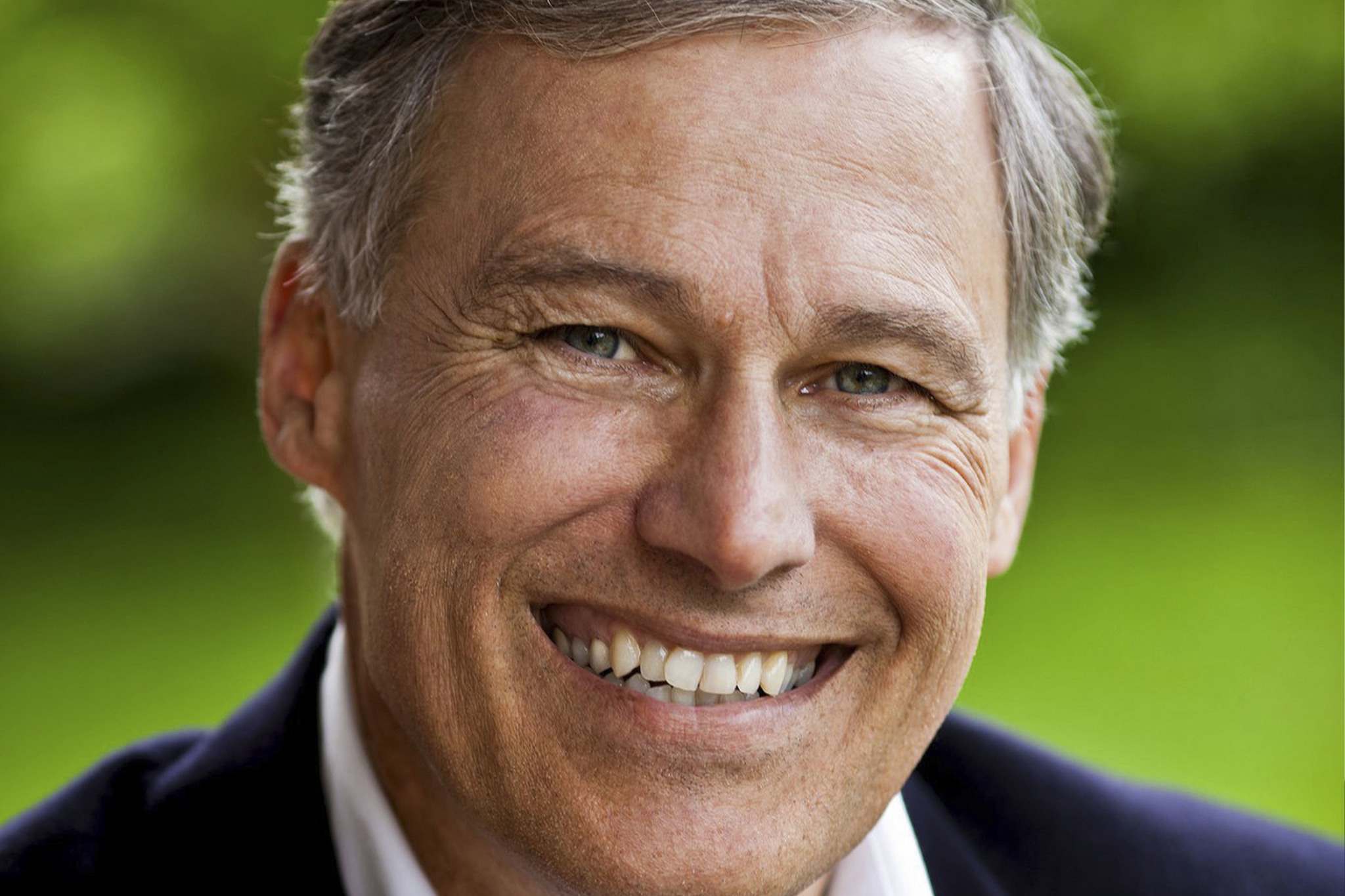Last Friday, amid dozens of strident calls for bans on oil trains, Gov. Jay Inslee changed his tune—let’s make them safer—by asking Union Pacific, the railroad company responsible for June 3 derailment in Mosier, Ore., to “halt all oil-train shipments in Washington until they improve inspection protocols” along the railroad tracks.
350 Seattle and other protesters who rallied against oil trains both outside and inside a fundraiser that President Barack Obama held for Inslee on Friday afternoon (to which the President replied, “I’ve still got six months; give me a little more time”) have now launched a petition asking the governor to demand a moratorium on all oil trains in Washington. Calling for a temporary halt to Union Pacific traffic but not BNSF traffic—which is responsible for carrying far more oil in the state—feels insubstantial to some. It’s “not satisfactory,” says activist Patrick Mazza.
Meanwhile, it’s not just oil trains; there’s also been plenty of consternation from environmentalists over the Department of Ecology’s Clean Air Rule, which the Inslee administration rewrote in part to fold in feedback from business and fossil-fuel interests, and which does not meet the goals of the original 2008 Clean Air Act that Governor Inslee used as a basis for ordering the rule in July 2015. It also doesn’t meet the goals recommended by climate science.
“The best science requires eight percent annual reductions starting now,” says Mazza, who wrote a lengthy post on his blog calling out the governor for his lackluster approach to climate policy—and large environmental groups in the state for their lackluster approach to calling out the governor. The current draft rule puts overall statewide reductions at about one percent a year, he says, which “falls so short as to make the rule practically useless to protect the climate and future generations.”
What’s more, despite Inslee’s repeated public congratulations to the eight kid plaintiffs who won their climate-change court case, his administration recently appealed that ruling. In April, Judge Hollis Hill ordered Ecology to complete its final carbon rule by the end of the year; a successful appeal of that decision would release the state from that timeline.
“The public needs to understand that what the governor and the Department of Ecology are doing is greenwashing,” said Our Children’s Trust executive director Julia Olson, one of the kids’ lawyers, in a fierce June 16 statement entitled “Governor Doubles Down on Betraying Youth.”
But the reason for the Inslee administration’s appeal of Judge Hill’s ruling might be merely administrative, says Vlad Gutman, Washington director at Climate Solutions. If the second round of public comments requires dramatic changes—such as far steeper emissions reductions, as Our Children’s Trust is asking—Ecology will have to reissue a third draft, starting the clock on the six-month comment process yet again. Gutman says he has every reason to believe Ecology will keep its promises and release a final Clean Air Rule in August, but appealing Judge Hill’s timeline might in fact allow for a greener rule. “We think [the second draft of the rule] is a meaningful step forward; we think it’s better than the first draft,” he says. And “we agree that it could be better.” But to make it significantly better might put Ecology “in conflict with the court.”
The public “deserves full opportunity to influence the final outcome, and the court-ordered deadline could hamper that,” explains Camille St. Onge, Ecology’s air-quality communications manager. “An appeal preserves our ability to consider comments about the most significant environmental problem of our time from all Washingtonians.”
But as attorney Andrea Rodgers told Seattle Weekly earlier this spring, the Department of Ecology has been calling climate change the most significant environmental problem of our time since 1990. “You know what? Time is running out,” she said then. “26 years is a very long time to get it right.”
It’s unclear whether these dissatisfactions will impact Inslee’s re-election; major environmental groups in the state are standing behind him. But some, like Mazza, who was among the climate protesters outside Inslee’s fundraiser last week, are concerned that “greenwashing” optics take too much of a risk with his base. “They undermine your credibility with a green constituency that you need for re-election,” Mazza writes at the end of the post in an open letter to Inslee, adding that Inslee’s support for methanol refineries in Tacoma and Kalama, a $9 billion highway construction package, and the lack of a hard line with oil trains and oil terminals “did not help much either.”
The next big issue to cross Inslee’s desk: the Tesoro-Savage oil-export-terminal proposal at the Port of Vancouver, now in the last stages of review, which would send up to five more crude-carrying trains along the Columbia River each day. So far, his administration has kept mum on that project (in part because of legal restrictions while the project is under review). But with recommendations against it from the city of Vancouver, the Washington Department of Natural Resources, and the state attorney general’s office, among others, the opposition is fierce: They’ve been flooding Inslee’s office with emails and comments, gathering by the hundreds, and organizing a nationwide Stop Oil Trains Week of Action. All eyes, now, on Inslee; the Energy Site Evaluation Council will finish hearing testimony from both sides in about five weeks, and make a recommendation to the governor after that.








